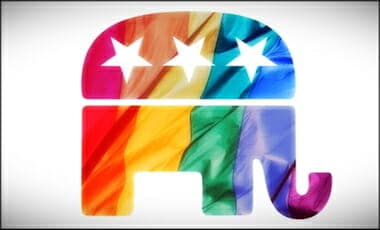Dennis Prager reads from a New York Post article penned by a gay man admitting his coming out as a conservative is tougher than coming out to his family as gay.
Here is some of the NEW YORK POST article:
When Out magazine assigned me an interview with the Breitbart.com rabble-rouser Milo Yiannopoulos, I knew it would be controversial. In the gay and liberal communities in particular, he is a provocative and loathed figure, and I knew featuring him in such a liberal publication would get negative attention. He has been repeatedly kicked off Twitter for, among other things, reportedly inciting racist, sexist bullying of “Ghostbusters” actress Leslie Jones. Before interviewing Yiannopoulos, I thought he was a nasty attention-whore, but I wanted to do a neutral piece on him that simply put the facts out there.
After the story posted online in the early hours of Sept. 21, I woke up to more than 100 Twitter notifications on my iPhone. Trolls were calling me a Nazi, death threats rolled in and a joke photo that I posed for in a burka served as “proof” that I am an Islamophobe.
I’m not.
Most disconcertingly, it wasn’t just strangers voicing radical discontent. Personal friends of mine — men in their 60s who had been my longtime mentors — were coming at me. They wrote on Facebook that the story was “irresponsible” and “dangerous.” A dozen or so people unfriended me. A petition was circulated online, condemning the magazine and my article. All I had done was write a balanced story on an outspoken Trump supporter for a liberal, gay magazine, and now I was being attacked. I felt alienated and frightened.
I laid low for a week or so. Finally, I decided to go out to my local gay bar in Williamsburg, where I’ve been a regular for 11 years. I ordered a drink but nothing felt the same; half the place — people with whom I’d shared many laughs — seemed to be giving me the cold shoulder. Upon seeing me, a friend who normally greets me with a hug and kiss pivoted and turned away.
Frostiness spread far beyond the bar, too. My best friend, with whom I typically hung out multiple times per week, was suddenly perpetually unavailable. Finally, on Christmas Eve, he sent me a long text, calling me a monster, asking where my heart and soul went, and saying that all our other friends are laughing at me.
I realized that, for the first time in my adult life, I was outside of the liberal bubble and looking in. What I saw was ugly, lock step, incurious and mean-spirited.
Still, I returned to the bar a few nights later — I don’t give up easily — and hit it off with a stranger. As so many conversations do these days, ours turned to politics. I told him that I’m against Trump’s wall but in favor of strengthening our borders. He called me a Nazi and walked away. I felt awful — but not so awful that I would keep opinions to myself.
And I began to realize that maybe my opinions just didn’t fit in with the liberal status quo, which seems to mean that you must absolutely hate Trump, his supporters and everything they believe. If you dare not to protest or boycott Trump, you are a traitor.
If you dare to question liberal stances or make an effort toward understanding why conservatives think the way they do, you are a traitor.
It can seem like liberals are actually against free speech if it fails to conform with the way they think. And I don’t want to be a part of that club anymore….
